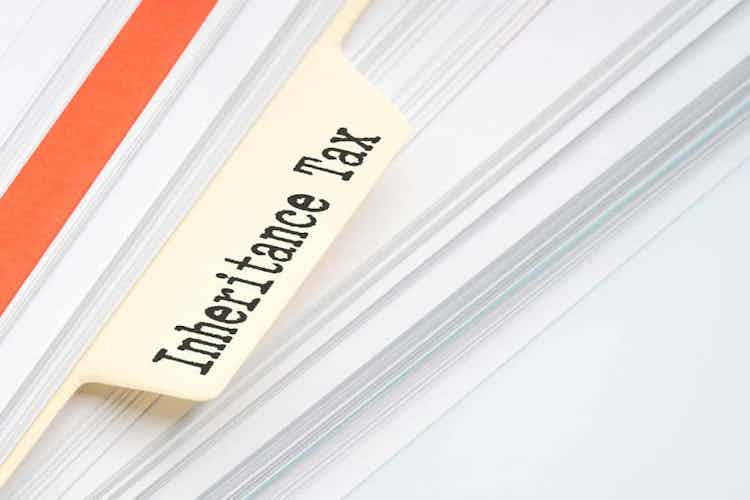Tax on the inheritance of property has existed in the UK since probate duty was first introduced in 1694. But it's only in recent years that it has become a significant consideration for large swathes of the population. While house prices have escalated, inheritance tax thresholds have remained the same or even reduced. More people now face the prospect of falling foul of inheritance tax legislation than ever before.
Unfortunately, although many retired people would love to see inheritance tax abolished, there is no prospect of that happening soon. While the British government has stated that inheritance tax should be limited to the “very rich”, the current threshold still stands at £325,000 per person – with the figure doubling to £650,000 for a married couple.
This paltry figure means that virtually anyone with a property in London will find their estate subject to inheritance tax. The executor of your will calculates the value of your estate, taking all assets into account. The value of assets over £325,000 per person is subject to tax at the standard rate of 40%. For example, if the executor values your estate at £500,000, an inheritance tax bill of £70,000 applies.
Naturally, this means many people wish to reduce or eliminate their inheritance tax burden.
In this two-part series, we're going to examine some of the ways you might be able to do this.
Hand your estate to your partner
The first option you have if you're married or have a civil partner is to enable them to inherit your whole estate. HMRC cannot touch any inheritance dedicated to spouses or civil partners, whether gifted in property, shares, physical assets, or cash.
Also, any spouse included in such an arrangement automatically inherits any portion of your inheritance tax allowance that you haven't used when you pass away. They can theoretically leave £650,000 worth of assets when they die, and no inheritance tax will be payable.
This changes when you leave assets to other family members, with the amount involved deducted from the allowance. For example, if you were to leave £100,000 to other family members, your spouse will only be entitled to leave £550,000 before any inheritance tax is due.
Give annual gifts
The second way to reduce inheritance tax is to pass assets on as gifts during your lifetime. Such gifting is referred to as 'potentially exempt transfers'. But, as the name indicates, these may not necessarily be exempt from inheritance tax. These only gain exempt status if you live for seven years after making them, preventing you from handing out a raft of gifts on your deathbed.
Should you die within three years of making a potentially exempt transfer, the full amount of inheritance tax will be due. This then reduces on a sliding scale depending on the amount of time that has passed.
- If you live for between three and four years, there will be an 80% reduction in inheritance tax.
- If you live for between four and five years, there will be a 60% reduction.
- If you live for between five and six years, there will be a 40% reduction.
- If you live for between six and seven years, there will be a 20% reduction.
However, some gifts are entirely exempt from inheritance tax, including gifts attributed to charities.
Furthermore, you can also proffer gifts of £250 to as many people you want on an annual basis. Newly married couples are also entitled to receive gifts without them being included in the married couple's estate. Parents can offer the newlyweds cash and gifts totalling £5,000, with the figure for grandparents being £2,500, and anyone else limited to £1,000.
Life insurance
Another option to reduce your inheritance tax burden is to take out life insurance, enabling loved ones to receive an immediate payout when you die. Inheritance tax does not apply to life insurance payouts, either.
However, the policy must be initiated correctly for this to be effective. When you take out a life insurance policy, it's essential to put it into a trust, which will prevent the taxman from taking a bite out of it. Part of this process involves appointing beneficiaries of the trust. These individuals will then be paid the full sum due when you die. And one of the wonderful things about this is that the delays that can be associated with inheritance payouts are completely eliminated from the process.
Thus, you can insure your life for any sum you believe your heirs will have to pay in inheritance tax, effectively offsetting this liability. But there are a few caveats to this as well. You generally have to be in good health to initiate these policies, or else it will be viewed unfavourably as an illegitimate tax dodge. It's also notable that life insurance premiums rapidly escalate as you get older.
An option that you should certainly consider when initialising your life insurance policy is to seek the advice of a financial advisor. Legal counsel can also be helpful. Legal issues related to trusts can be complicated, so it's often advisable to ensure you've covered every base before committing to investing in one.
Reducing inheritance tax on your property
So that’s the lowdown on some of the more common ways that you can reduce your inheritance tax burden. In the second part, we’ll be looking at some other options, but to finish this introduction here is a summary of the key points discussed here:
- Any inheritance below £325,000 per person will not be taxed.
- Your estate comprises money, shares, property, and any other assets.
- You can hand your whole estate to your partner to avoid inheritance tax.
- Annual gifts can help reduce your inheritance tax burden.
- Life insurance and trusts are a viable option for inheritance tax reduction.






